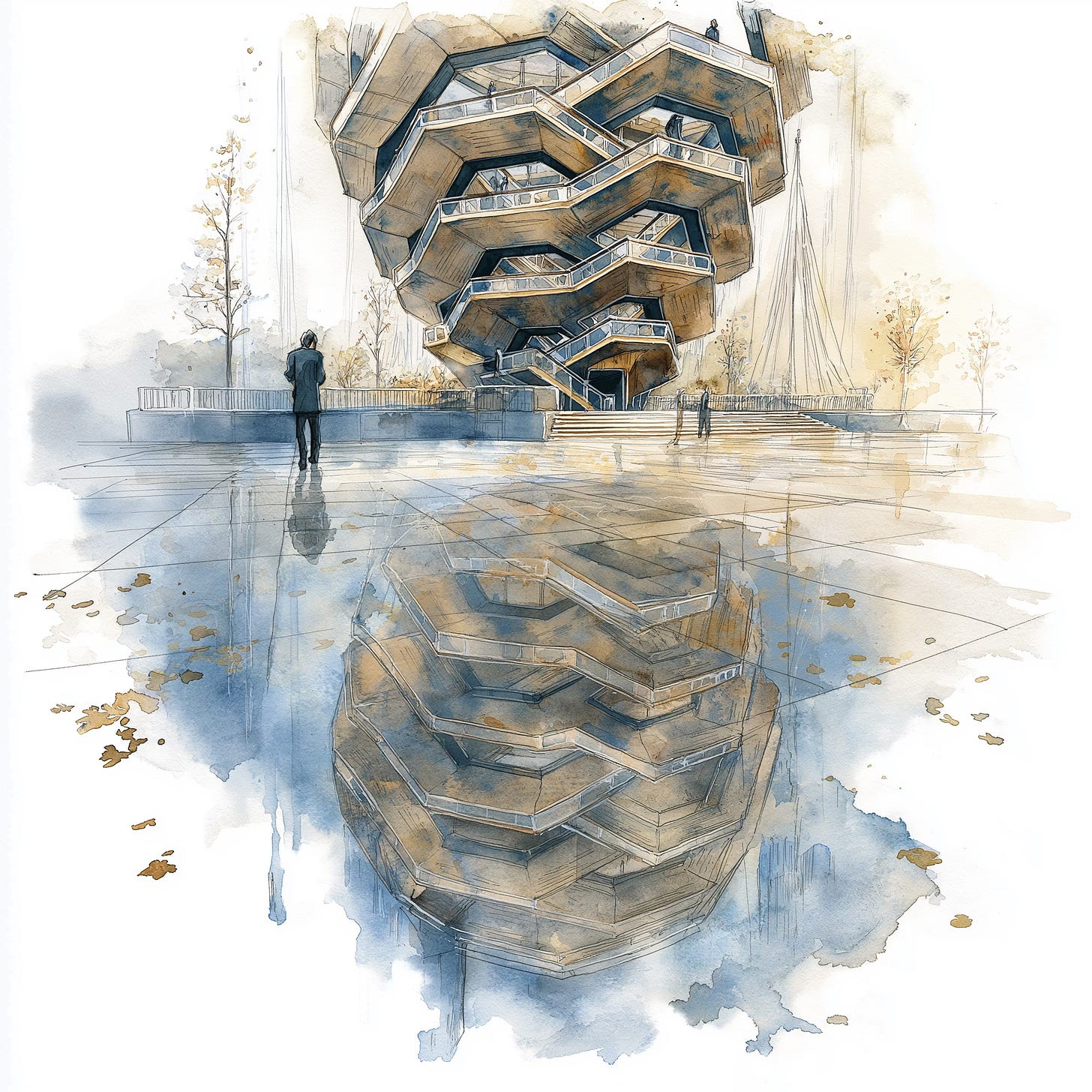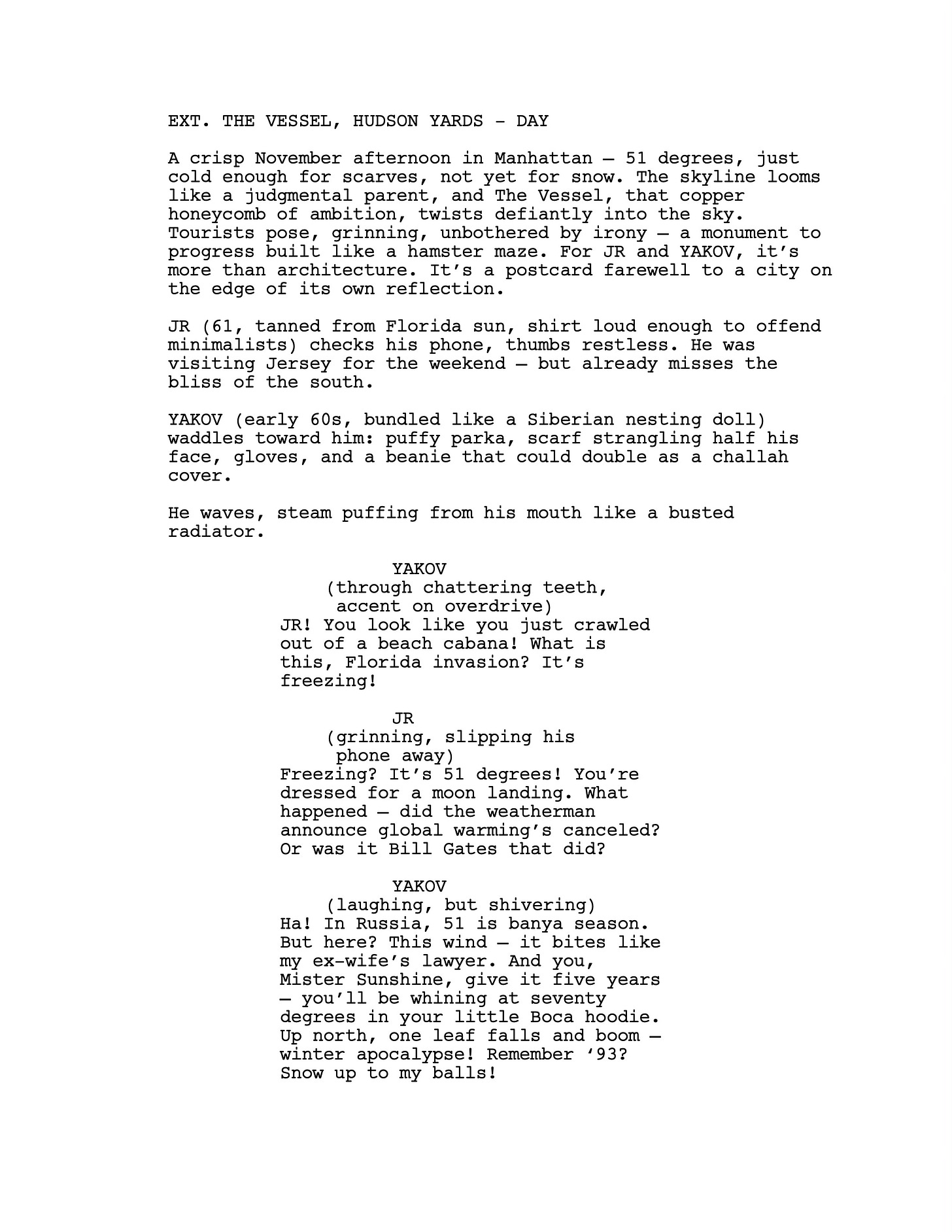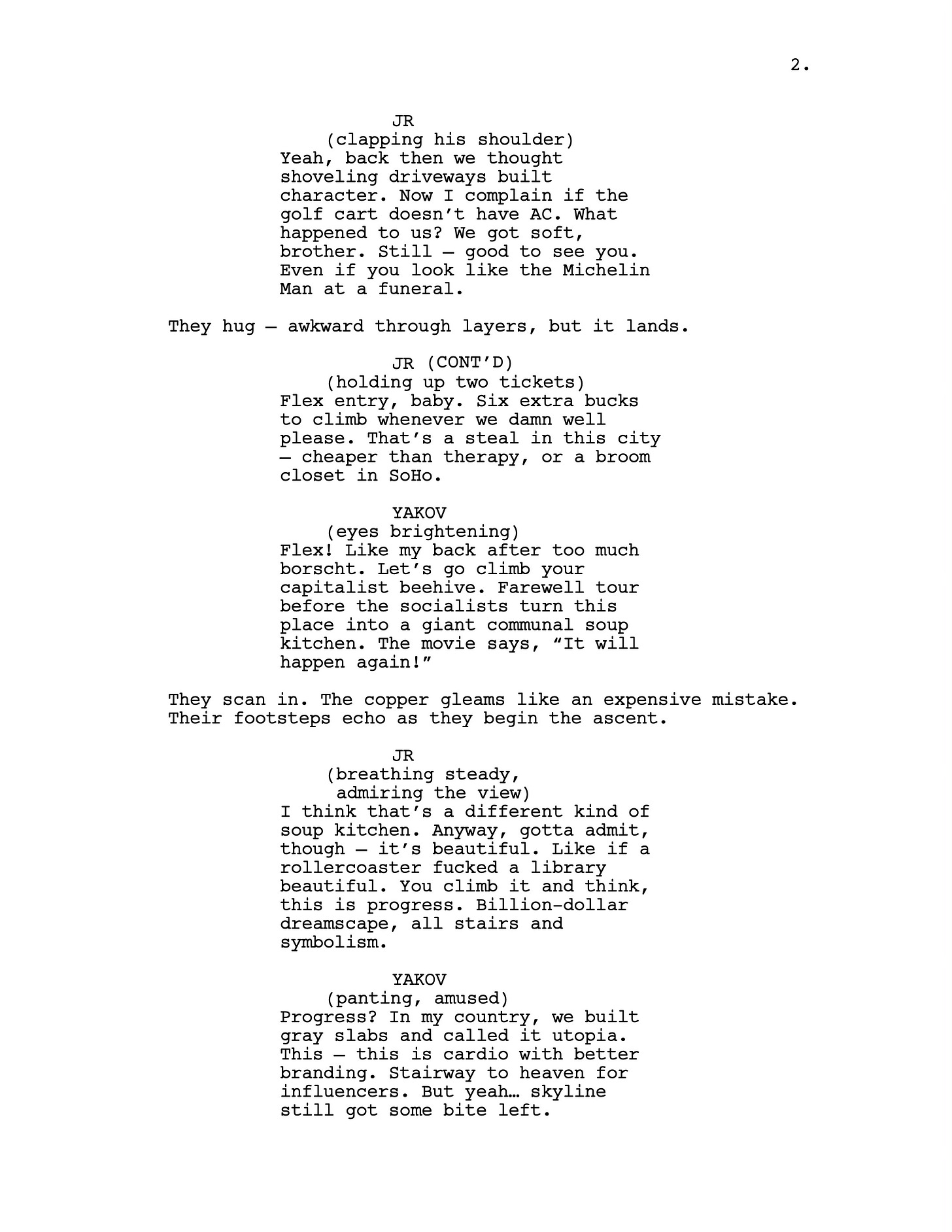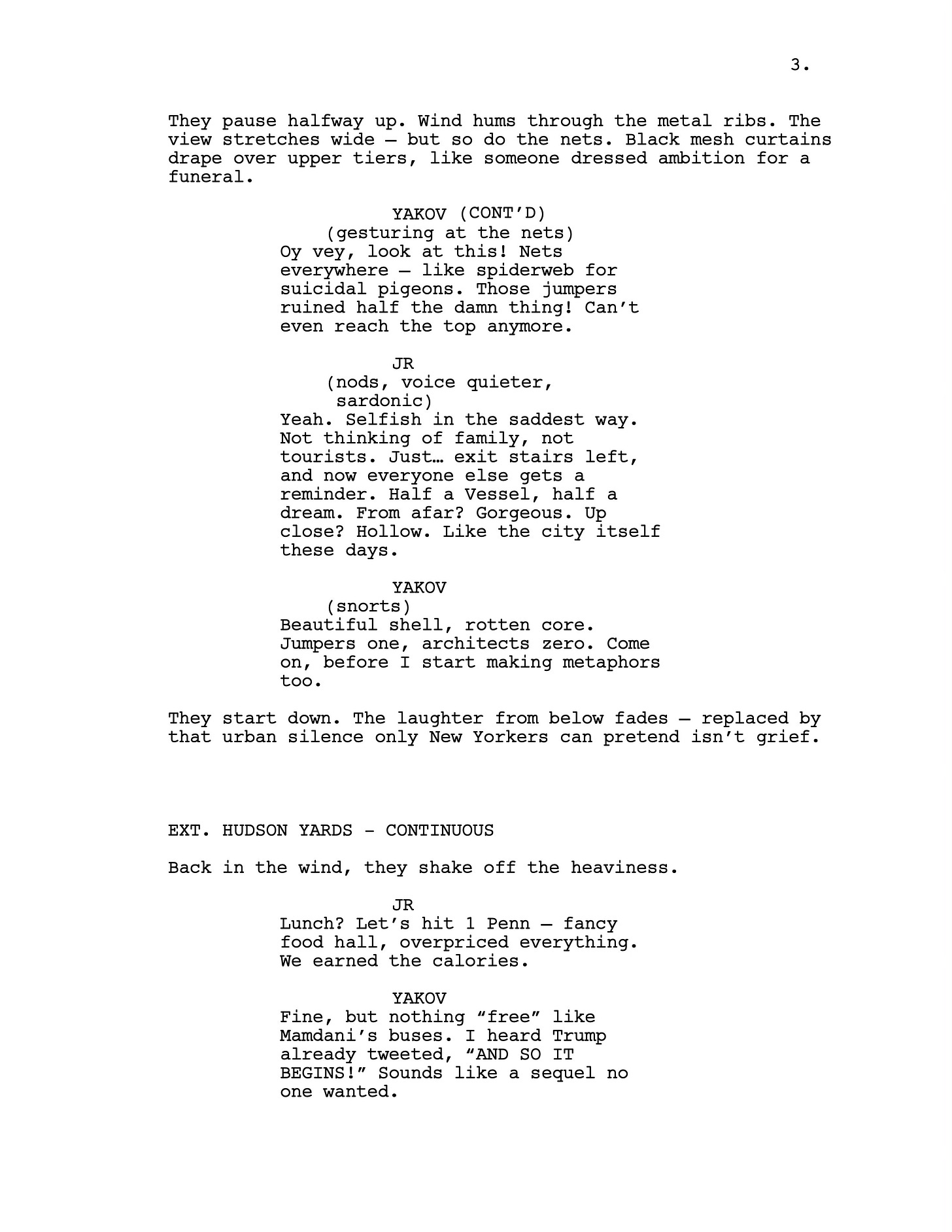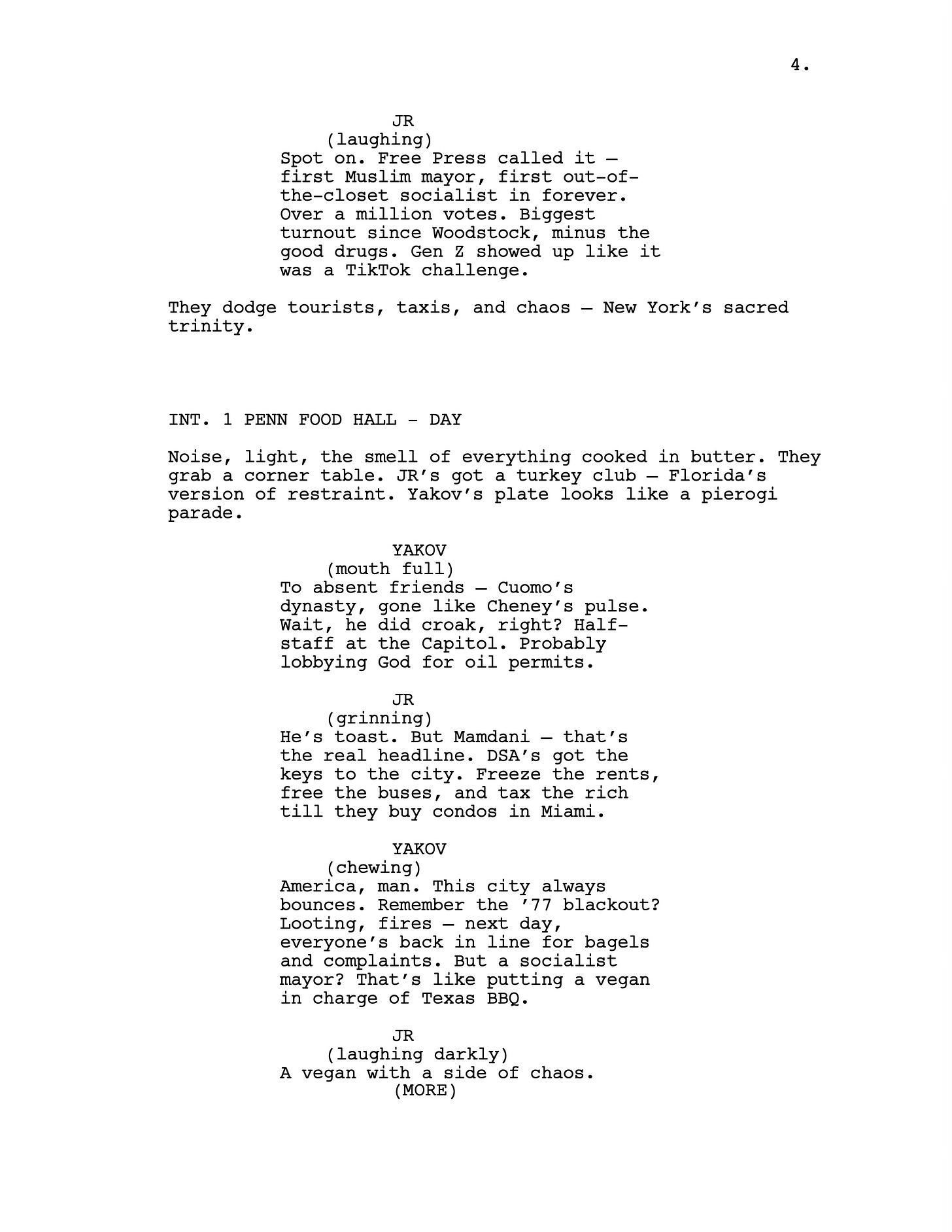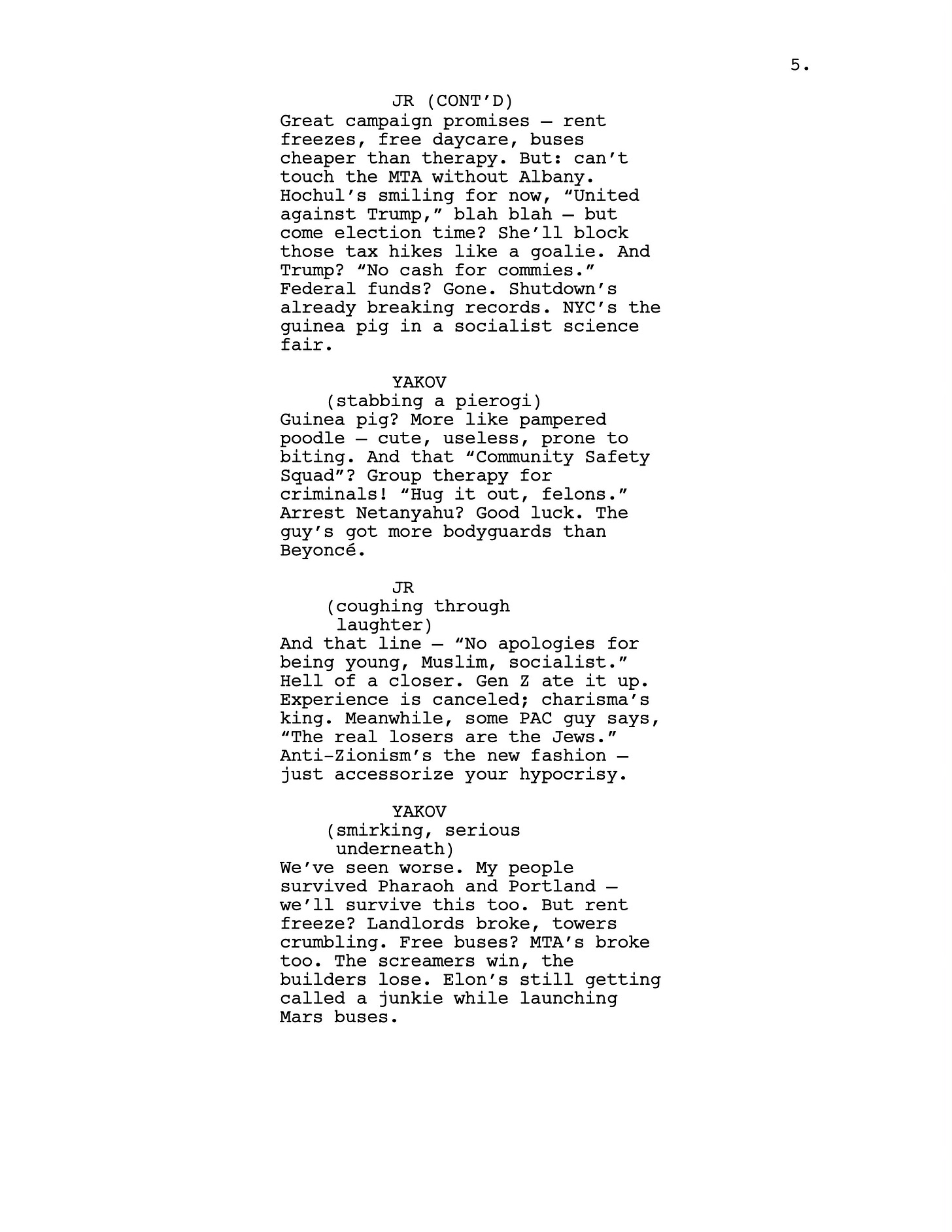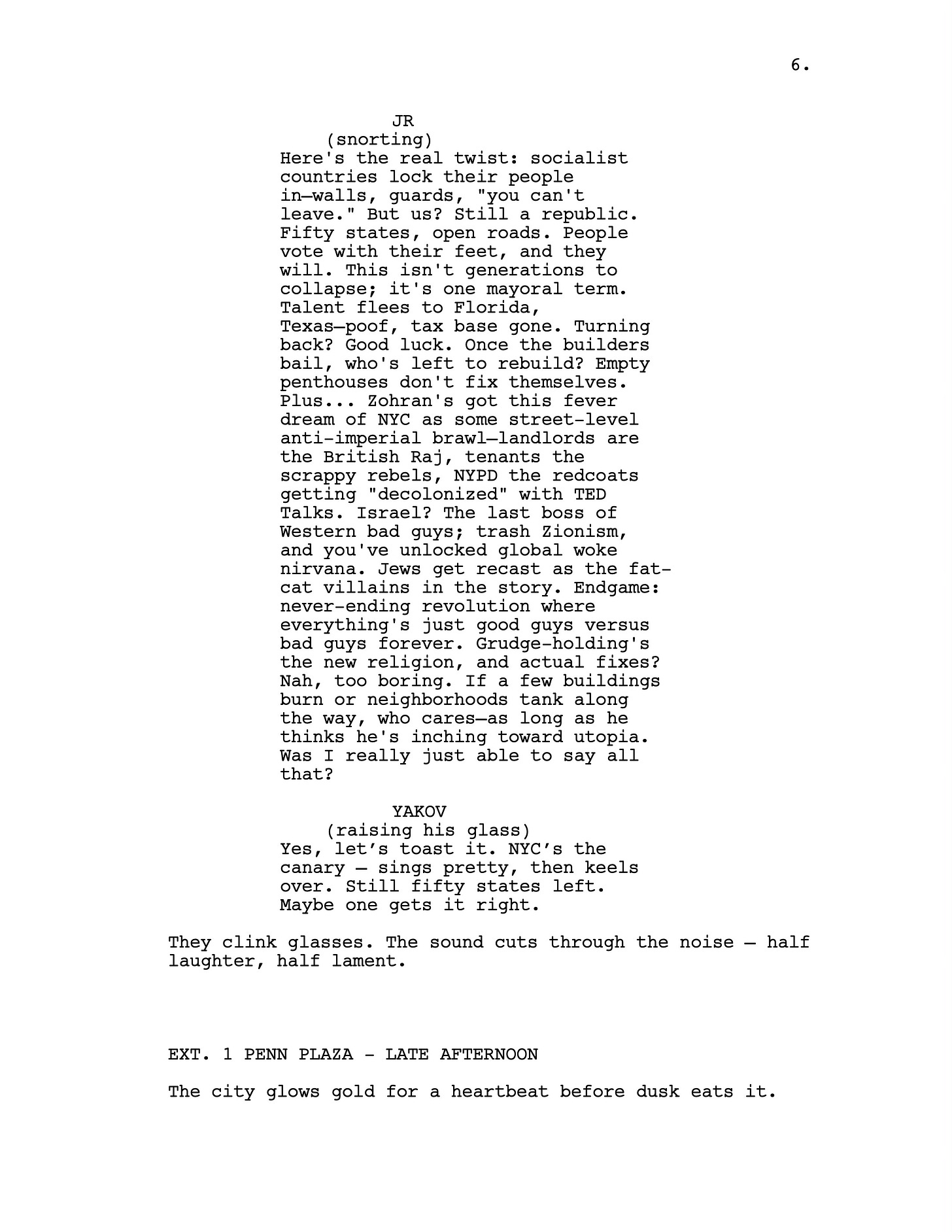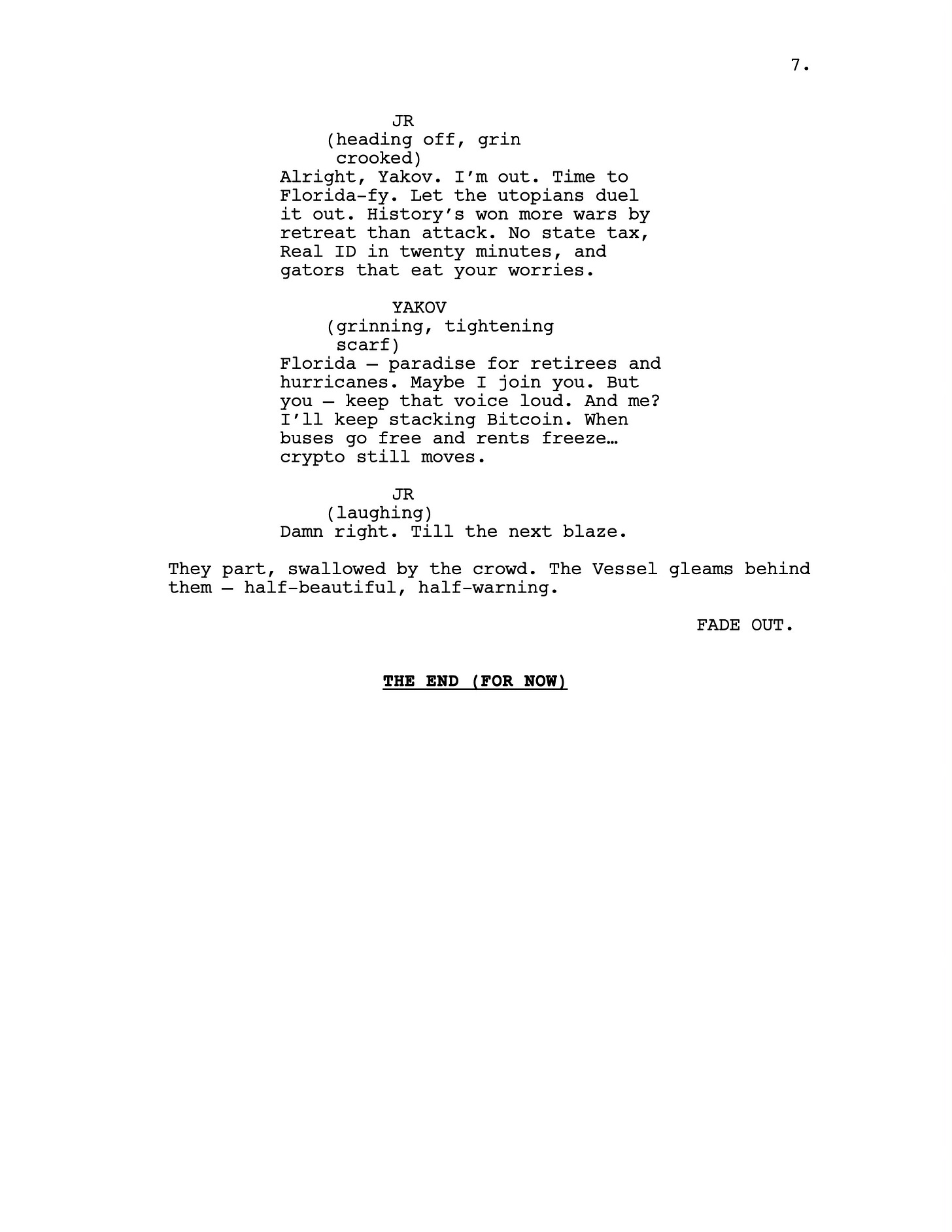Battle for the West – Chapter 2
When satire stops pretending it’s fiction
There are times when the story you tell turns around and starts speaking back to you. A few weeks ago, in The Fiction That Speaks Truth, I wrote about the strange power of narrative—how fiction can sometimes capture the essence of reality more precisely than any white paper or op-ed. It was meant as an observation, maybe even a warning. But now, life seems to be auditioning for the sequel.
The scene you’re about to read picks up where that idea left off. The names are the same, the city’s still standing—possibly barely—and the humor still bites. Yet beneath the banter runs a pulse of unease: what happens when parody becomes prophecy? When the absurd starts looking like tomorrow’s headline?
If the first chapter asked whether stories could shape reality, this one wonders if reality has learned to imitate the stories we fear most. It’s less about politics than about drift—how cultures, cities, and even friendships tilt between nostalgia and reinvention, between faith in the climb and fatigue with the view.
So, take this as both continuation and mirror. A fiction that insists on feeling real, because maybe that’s the only way we can still talk about what’s happening without shouting.
✨ Seed Thought: Satire survives where honesty can’t—because sometimes, the only way to speak the truth is to tell a story outrageous enough to be believed.



